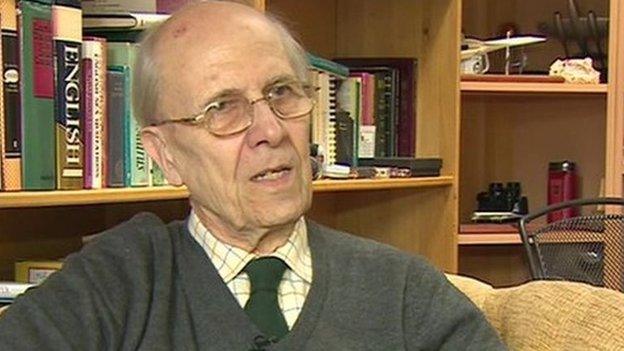Brighton Bomb: Lord Tebbit refuses to forgive IRA
- Published
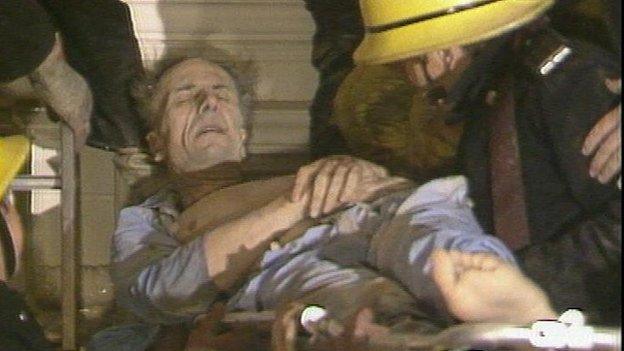
Norman Tebbit was stretchered from the ruins of the Grand Hotel
On 12 October 1984 an IRA bomb ripped apart a Brighton hotel during the Conservative Party conference. Its target was the Prime Minister, Margaret Thatcher. She survived, but five other people were killed and many more injured, including the Trade Secretary Norman Tebbit and his wife. Now 83, Lord Tebbit is still not prepared to forgive the terrorists.
Planted several weeks earlier, the bomb was hidden in a bathroom wall of the Grand Hotel.
Its timer was set for 02:34, when - the IRA hoped - most people would be in their rooms asleep.
The explosion ripped apart the front of the hotel, sending several floors crashing down on top of each other.
Mrs Thatcher was unhurt, however, five people died - Anthony Berry MP, Roberta Wakeham, Eric Taylor, Muriel Maclean and Jeanne Shattock.
Lord Tebbit and his wife, Margaret, were lying in bed when their ceiling collapsed. Lady Tebbit remains paralysed to this day.
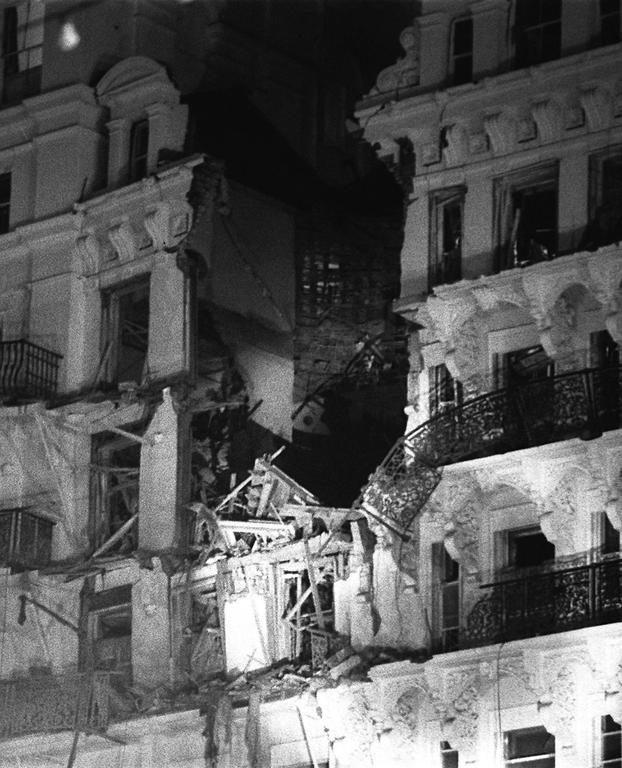
The explosion destroyed the front of the hotel and caused several floors to collapse
The terrorist who planted the bomb, Patrick Magee, was jailed but released under the Good Friday Agreement in 1999. He now regularly appears in public alongside Mr Berry's daughter, Jo, discussing peace and reconciliation.
Lord Tebbit said: "Magee was just a little office boy essentially. He has never repented for his sins and without repentance there can be no forgiveness.
"He makes a living, I understand now, by going around talking about these things, but he's done nothing to put any of it right.
"As for the others - those who planned it commissioned it paid little Magee his few shillings - they of course have never confessed. They have never given a word of sorrow.
"So there is no possibility of any forgiveness there."
Norman Tebbit was stretchered from the ruins of the Grand Hotel
He added: "One can hope that there's a particularly hot corner of hell reserved for them and they can repent in their own time there."

Patrick Magee
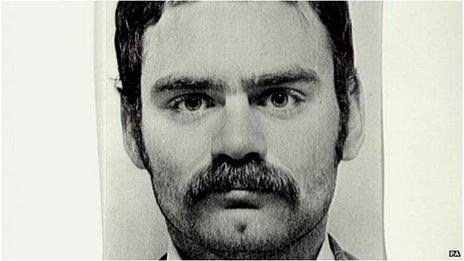
Patrick Magee planted the bomb a few weeks before the conference, after checking himself into the Grand Hotel under a false name.
He was caught and sentenced to 35 years in prison. Four members of an IRA "active service unit" were also jailed for involvement in the plot.
In prison Magee got a first class Open University degree in fiction and its portrayal of the Troubles.
He was released in 1999, under the Good Friday Agreement, a move described by one Downing Street spokesperson as "very hard to stomach".

Despite being shaken by the bomb, Mrs Thatcher gave a rewritten speech at the conference later that day.
She said: "This attack has failed. All attempts to destroy democracy by terrorism will fail."
However, a statement released that day by the IRA read: "Today we were unlucky, but remember, we only have to be lucky once; you will have to be lucky always. Give Ireland peace and there will be no war."
Documents released in January showed the blast nearly derailed the peace process, after Mrs Thatcher became reluctant to continue secret meetings with the Irish government.
She commented that Britain must avoid the impression of "being bombed into making concession to the Republic".
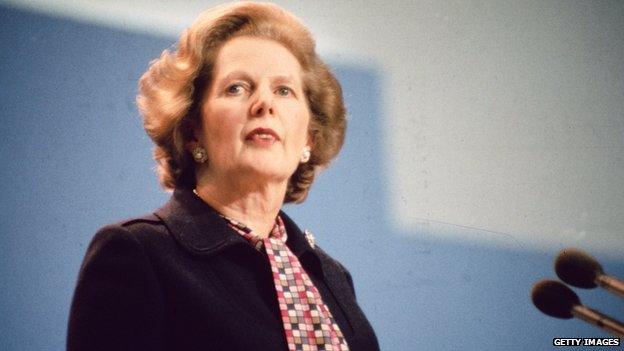
Margaret Thatcher gave a speech to the Conservative conference only hours after the blast
Since his release Magee has been seen in public several times with the daughter of Anthony Berry, Jo, discussing peace and reconciliation.
Ms Berry was 27 when her father was killed.
"It blew my world apart and changed my life completely," she said.
She first met Magee in November 2000, quite soon after his release. They will also share a platform in Brighton, external on Sunday to mark the 30th anniversary of the explosion.
"We've met about 140 times," she said.
"When we first met, he came from a political perspective, but he soon began to realise he killed a wonderful human being.
"He realised he was guilty of dehumanising others in the same way he accused the government of dehumanising him and the IRA.
"He told me that if he had known what he knows about my father now, he would never have been able to do it. For me, that was profound."
The BBC could not reach Magee for comment.
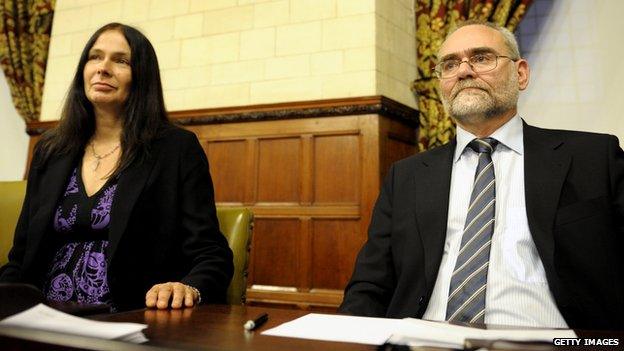
Jo Berry and Patrick Magee have appeared in public discussing peace and reconciliation
- Published3 January 2014
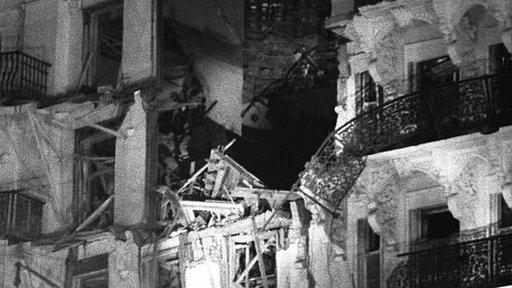
- Published11 April 2014
